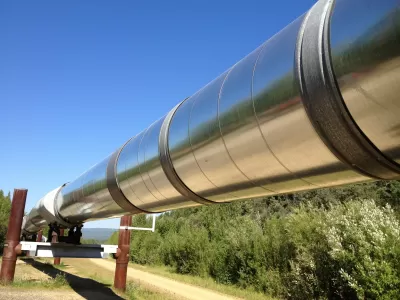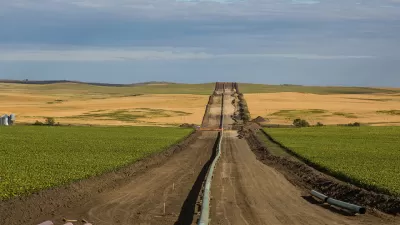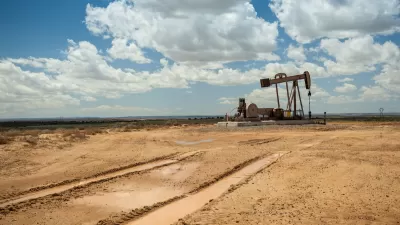Safety is one trigger in the heated debate over whether fossil fuels should be transported by pipeline. While the industry insists the method is safer than others, the spread of accidents since 1986 is substantial.

[Updated Dec. 9, 2016]
In the wake of the protests at Standing Rock, oil and gas pipelines remain as fraught an issue as ever. George Joseph writes, "Oil industry supporters argue that pipelines are safer alternative to hauling fuel by tanker trucks or freight trains. [...] Environmentalists, however, point to a lack of adequate state and federal regulation and the difficulties of maintaining millions of miles of aging pipeline infrastructure."
The statistics bear some of those worries out. "Over the last twenty years, more than 9,000* significant pipeline-related incidents have taken place nationwide, according to data from the Pipeline and Hazardous Materials Safety Administration. The accidents have resulted in 548 deaths, 2,576 injuries, and over $8.5 billion in financial damages."
[*Editor's note: A representative at the Pipeline and Hazardous Materials Administration (PHMA) of the U.S. Department of Transportation contacted Planetizen to point out that the reported 20-year total of significant pipeline incidents is 5,675. Incidents deemed significant have resulted in 347 fatalities, 1,346 injuries, and $7.5 billion in costs. All data for pipeline incidents, significant and otherwise, are available online.]
Using federal data compiled by environmental advocate Richard Stover, CityLab mapped out all major pipeline accidents occurring from 1986 through 2016. "Significant pipeline-related incidents have picked up in recent years in certain states. In Texas, for example, the effects of the state's drilling boom may be seen in its increased accident rate: since 2009 the state has had 497 incidents, over a hundred more than in the seven years before."
FULL STORY: 30 Years of Oil and Gas Pipeline Accidents, Mapped

Study: Maui’s Plan to Convert Vacation Rentals to Long-Term Housing Could Cause Nearly $1 Billion Economic Loss
The plan would reduce visitor accommodation by 25,% resulting in 1,900 jobs lost.

Alabama: Trump Terminates Settlements for Black Communities Harmed By Raw Sewage
Trump deemed the landmark civil rights agreement “illegal DEI and environmental justice policy.”

North Texas Transit Leaders Tout Benefits of TOD for Growing Region
At a summit focused on transit-oriented development, policymakers discussed how North Texas’ expanded light rail system can serve as a tool for economic growth.

Nevada Bills Aim to Establish Home Insurance Assurance Amidst Wildfire Risk
Republican sponsor hopes the FAIR plan would be “a true market of last resort.”

Virginia Law Allows Judges to Mandate Speed Limiters
The law could set a new precedent for speed limiting tech on U.S. vehicles.

Comment: EPA Cuts will Send Atlanta Back to Eye-burning Ozone, Lung-damaging Smog, and Raw Sewage in the Chattahoochee River
A veteran political journalist takes stock of the hard-earned ground Georgia stands to lose with slashed environmental protection.
Urban Design for Planners 1: Software Tools
This six-course series explores essential urban design concepts using open source software and equips planners with the tools they need to participate fully in the urban design process.
Planning for Universal Design
Learn the tools for implementing Universal Design in planning regulations.
City of Santa Clarita
Ascent Environmental
Institute for Housing and Urban Development Studies (IHS)
City of Grandview
Harvard GSD Executive Education
Toledo-Lucas County Plan Commissions
Salt Lake City
NYU Wagner Graduate School of Public Service





























